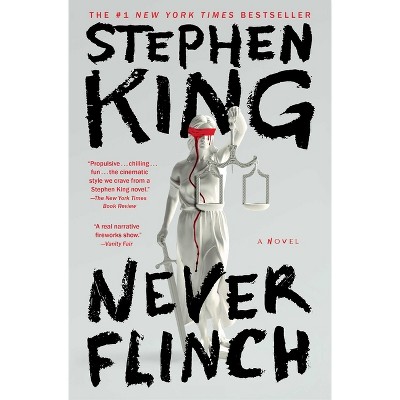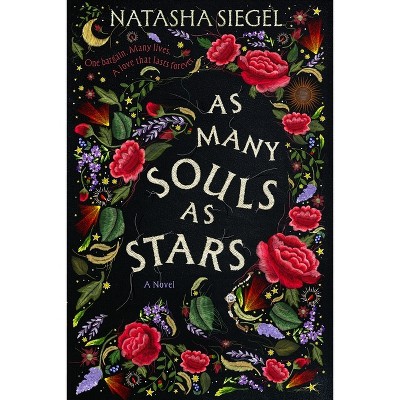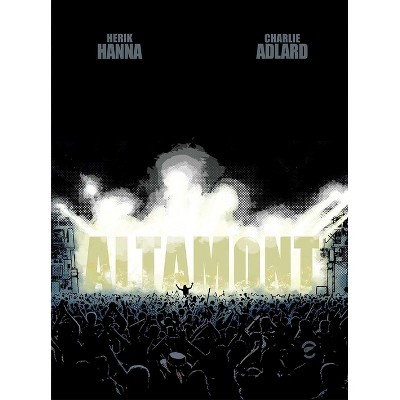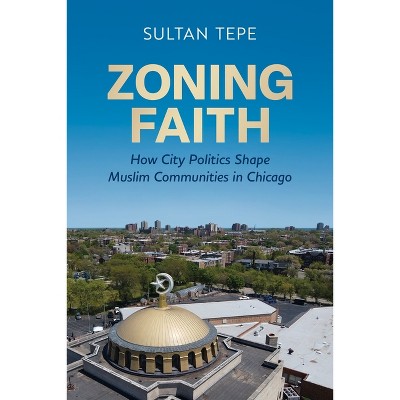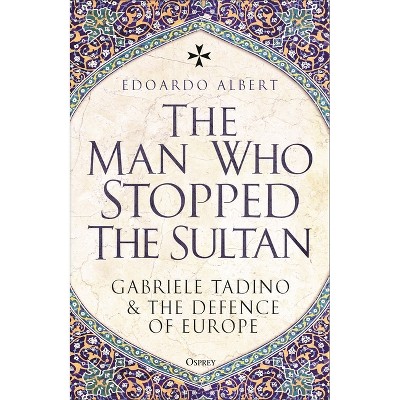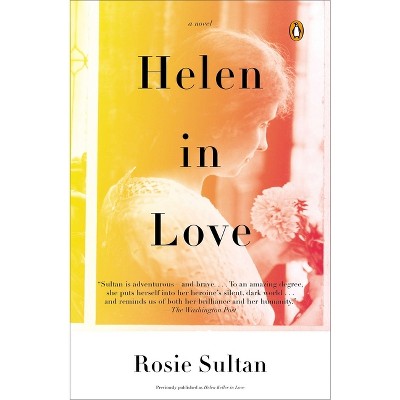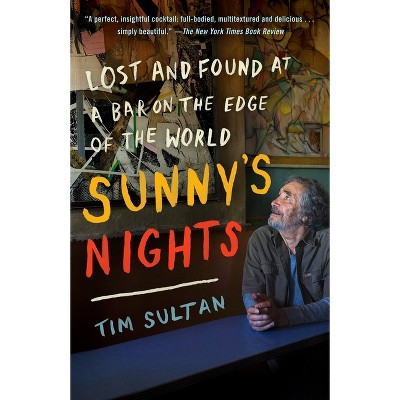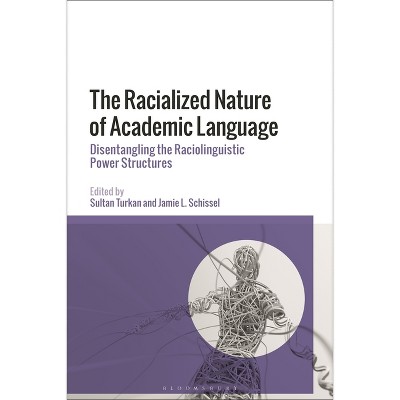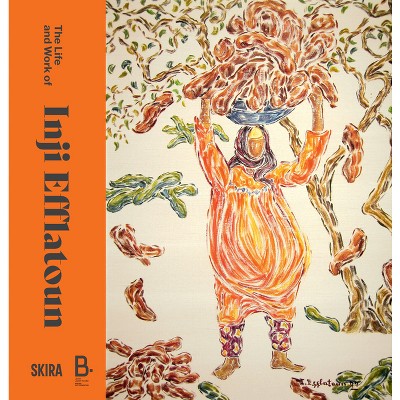Sponsored

Endgame of Empire - by Ather Sultan & Atiyab Sultan (Hardcover)
Pre-order
Sponsored
About this item
Highlights
- In the late 1920s and 30s, the international chess scene was rocked by the success of Sultan Khan, a self-taught prodigy from colonial Punjab.
- About the Author: Ather Sultan (Author) Ather Sultan is a retired Inspector General of Police from the Police Service of Pakistan and taught public administration as a visiting faculty member at Quaid-i-Azam University in Islamabad for over twenty years.
- 208 Pages
- Games, Chess
Description
About the Book
The definitive biography of a South Asian genius who conquered the international chess world on the eve of decolonizationBook Synopsis
In the late 1920s and 30s, the international chess scene was rocked by the success of Sultan Khan, a self-taught prodigy from colonial Punjab. In a brief international career, Khan stunned the chess elite by repeatedly defeating the world's best players and winning the British Chess Championship three times. Despite his dazzling creativity and peerless endgame technique, Khan's legacy has long been marginalized or inaccurately portrayed. Written by Khan's son and granddaughter, Endgame of Empire offers a comprehensive biography of this trailblazing genius who became the first Asian and first person of color to rise to the top of international chess.
From its origins in South Asia, chess had developed into an emblem of European culture. With Khan's arrival to reclaim the game, it became a catalyst for the many ways in which individuals, ideologies, and empires clashed in the interwar period. Endgame of Empire offers a vivid portrait of Khan as he navigated challenges on and off the chessboard. His rise was meteoric, but also fraught with prejudice and ultimately cut short by the political realities of his time. Set in the broader context of race, empire, and decolonization, the book celebrates Khan's genius as a strategist while also uncovering the difficult circumstances under which he conquered international chess. It also provides the first extended accounts of Khan's life in colonial India before his chess career and his life after professional chess in the Pakistan whose arrival he had long desired. In an appendix, former U.S. Chess Champion Sam Shankland walks the reader through six of Khan's finest victories. This instructive commentary provides both an account of Khan's style and a lesson for beginning and experienced chess players alike in the strategic ideas at which Khan was ahead of his time. At a moment of emergent nationalism in South Asia, Khan's unassuming brilliance on the chessboard came to represent something greater: a graceful assertion of equality and a prelude to independence. Blending intimate family recollections, archival discoveries, and sharp historical analysis, Endgame of Empire reclaims a legacy long overshadowed by race, empire, and myth and offers a playbook in holding one's own through adversity.From the Back Cover
The definitive biography of a South Asian genius who conquered the international chess world on the eve of decolonization
"A beautifully written and important book on Sultan Khan's meteoric career. While presenting Khan's devotion to family as well as his sensational achievements, like winning three British championships, Endgame of Empire does not shy away from the forces that cut Sultan Khan's career short, like the pervasive racism and Orientalism that have distorted his legacy to this day. Endgame of Empire brilliantly elaborates the triumphs of a groundbreaking grandmaster whose strategic originality and precision toppled the best players in the World, from Capablanca to Tartakower. The annotations by one of America's top grandmasters, Sam Shankland, are accessible and instructive and help bring Sultan Khan's genius to life."--WGM Jennifer Shahade, two-time U.S. Women's Chess Champion and author of Thinking Sideways: How to Think Like a Chess Player and Win at Life "A book devoted to the life, time and achievements of the legendary chess master Sultan Khan has been long overdue. It is rare to come across as captivating a story as that of Khan, who through sheer determination, skill, and brilliance upset the established norms of spatial and social distancing between the rulers and the ruled."--Ayesha Jalal, author of Muslim Enlightened Thought in South Asia "Endgame of Empire walks us through the intricacies of Sultan Khan's life and his chess playing engagements in South Asia and Europe. The book is a work of love and remembrance that records in lasting ways the life and significance of this remarkable chess player."--Robert Desjarlais, author of Counterplay: An Anthropologist at the Chessboard In the late 1920s and 30s, the international chess scene was rocked by the success of Sultan Khan, a self-taught prodigy from colonial Punjab. In a brief international career, Khan stunned the chess elite by repeatedly defeating the world's best players and winning the British Chess Championship three times. Despite his dazzling creativity and peerless endgame technique, Khan's legacy has long been marginalized or inaccurately portrayed. Written by Khan's son and granddaughter, Endgame of Empire offers a comprehensive biography of this trailblazing genius who became the first Asian and first person of color to rise to the top of international chess. From its origins in South Asia, chess had developed into an emblem of European culture. With Khan's arrival to reclaim the game, it became a catalyst for the many ways in which individuals, ideologies, and empires clashed in the interwar period. Endgame of Empire offers a vivid portrait of Khan as he navigated challenges on and off the chessboard. His rise was meteoric, but also fraught with prejudice and ultimately cut short by the political realities of his time. Set in the broader context of race, empire, and decolonization, the book celebrates Khan's genius as a strategist while also uncovering the difficult circumstances under which he conquered international chess. It also provides the first extended accounts of Khan's life in colonial India before his chess career and his life after professional chess in the Pakistan whose arrival he had long desired. In an appendix, former U.S. Chess Champion Sam Shankland walks the reader through six of Khan's finest victories. This instructive commentary provides both an account of Khan's style and a lesson for beginning and experienced chess players alike in the strategic ideas at which Khan was ahead of his time. At a moment of emergent nationalism in South Asia, Khan's unassuming brilliance on the chessboard came to represent something greater: a graceful assertion of equality and a prelude to independence. Blending intimate family recollections, archival discoveries, and sharp historical analysis, Endgame of Empire reclaims a legacy long overshadowed by race, empire, and myth and offers a playbook in holding one's own through adversity. Ather Sultan is a retired Inspector General of Police from the Police Service of Pakistan and taught public administration as a visiting faculty member at Quaid-i-Azam University in Islamabad for over twenty years. He holds degrees in English Literature from Government College Lahore, Economics from the London School of Economics, and Law from the University of Punjab. He is the oldest son of Sultan Khan. Atiyab Sultan is a career civil servant in the Pakistan Administrative Service and holds a doctorate from the University of Cambridge. She is the author of A Broken Record: Institutions, Community and Development in Pakistan (2022) and has coedited the Gazetteer of the Lahore District. She is Sultan Khan's granddaughter. GM Sam Shankland is a former U.S. Chess Champion. His latest book is Converting an Extra Pawn in Chess (2025).Review Quotes
"A beautifully written and important book on Sultan Khan's meteoric career. While presenting Khan's devotion to family as well as his sensational achievements, like winning three British championships, Endgame of Empire does not shy away from the forces that cut Sultan Khan's career short, like the pervasive racism and Orientalism that have distorted his legacy to this day. Endgame of Empire brilliantly elaborates the triumphs of a groundbreaking grandmaster whose strategic originality and precision toppled the best players in the World, from Capablanca to Tartakower. The annotations by one of America's top grandmasters, Sam Shankland, are accessible and instructive and help bring Sultan Khan's genius to life."---WGM Jennifer Shahade, two-time U.S. Women's Chess Champion and author of Thinking Sideways: How to Think Like a Chess Player and Win at Life
"Endgame of Empire walks us through the intricacies of Sultan Khan's life and his chess playing engagements in South Asia and Europe. The book is a work of love and remembrance that records in lasting ways the life and significance of this remarkable chess player."---Robert Desjarlais, author of Counterplay: An Anthropologist at the Chessboard
"A book devoted to the life, time and achievements of the legendary chess master Sultan Khan has been long overdue. It is rare to come across as captivating a story as that of Khan, who through sheer determination, skill, and brilliance upset the established norms of spatial and social distancing between the rulers and the ruled."---Ayesha Jalal, author of Muslim Enlightened Thought in South Asia
About the Author
Ather Sultan (Author)Ather Sultan is a retired Inspector General of Police from the Police Service of Pakistan and taught public administration as a visiting faculty member at Quaid-i-Azam University in Islamabad for over twenty years. He holds degrees in English Literature from Government College Lahore, Economics from the London School of Economics, and Law from the University of Punjab. He is the oldest son of Sultan Khan. Atiyab Sultan (Author)
Atiyab Sultan is a career civil servant in the Pakistan Administrative Service and holds a doctorate from the University of Cambridge. She is the author of A Broken Record: Institutions, Community and Development in Pakistan (2022) and has coedited the Gazetteer of the Lahore District. She is Sultan Khan's granddaughter.
Shipping details
Return details
Frequently bought together


Trending Book Pre-Orders




